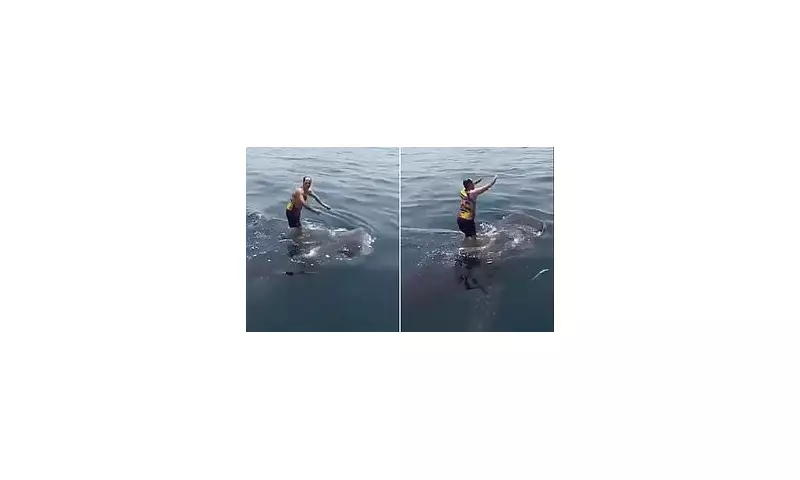
A shocking video has ignited global fury, capturing the moment a thrill-seeking tourist committed a blatant act of wildlife harassment by jumping onto the back of a vulnerable whale shark.
The incident, which has gone viral across social media platforms, reportedly took place in the popular tourist waters of Oslob in Cebu, Philippines. The footage shows a man standing on a pump boat before launching himself through the air and landing directly on the immense creature.
Outrage and Investigation Launched
The reckless act has prompted an immediate investigation by local authorities. The Philippine Department of Environment and Natural Resources (DENR) and the Bureau of Fisheries and Aquatic Resources (BFAR) have condemned the action, confirming they are working to identify the individual involved.
"This is a clear violation of the Wildlife Resources Conservation and Protection Act," a spokesperson stated, highlighting that such behaviour causes immense stress to the gentle giants and disrupts their natural feeding patterns.
Why This Act is So Damaging
Whale sharks, classified as an endangered species, are a major ecotourism attraction in Oslob. However, their proximity to humans is based on regulated, passive interaction.
- Stress and Harm: Physical contact can damage the shark's protective mucus layer, leaving it vulnerable to infection and disease.
- Disruption of Natural Behaviour: Actions like this can scare them away from important feeding grounds.
- Dangerous Precedent: It encourages other tourists to engage in similarly harmful behaviour for a photo opportunity.
Local operators and conservation groups have long worked to establish guidelines that protect both the animals and the sustainable tourism economy they support. This single act undermines years of careful work.
A Call for Responsible Tourism
This event has sparked a renewed call for responsible wildlife tourism. Experts urge travellers to always maintain a safe distance, never touch or feed marine life, and choose operators with strong ethical practices. The pursuit of a viral moment should never come at the expense of an animal's wellbeing.





